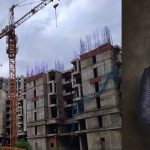Crisil expects residential demand in these markets to grow by 7–9 per cent in FY26, offering critical support to projects now being revived through restructuring
Asset Reconstruction Companies (ARCs) are expected to see a 16 percentage point jump in debt recovery from stressed real estate projects in FY 2025-26, taking the cumulative recovery rate on Security Receipts (SRs) to 38 per cent, according to a report by Crisil Ratings released on Monday.
The projected improvement is driven by strong sales in newly revived projects, underpinned by sustained demand in India’s residential real estate market and strategic debt restructuring led by ARCs.
The report is based on an assessment of 70 stressed projects located in key realty hubs—NCR, MMR and Bengaluru’s micro-markets—where SRs worth approximately Rs 10,800 crore have been issued. These projects were earlier weighed down by stalled construction, poor sales, and funding shortages, but restructuring and market recovery have turned them viable again.
Crisil expects residential demand in these markets to grow by 7–9 per cent in FY26, offering critical support to projects now being revived through restructuring. “Rising prices and increased traction in these regions have opened the door for external funding,” the report noted, adding that investor confidence is returning to once-stuck projects due to improving market dynamics.
About two-thirds of the rated projects fall in the mid-premium and premium housing categories, which are forecast to contribute up to 80 per cent of ARCs’ recovery during the fiscal year. Affordable housing projects, by contrast, are expected to show only modest demand and contribute relatively less to overall recovery.
Crisil also highlighted why debt restructuring has become the preferred resolution route. First, it enables ARCs to lower debt to sustainable levels, often with a moratorium, freeing up cash flow for developers to focus on completing construction. Second, legal and structural complexities in real estate—such as layered ownership, Special Purpose Vehicle (SPV) structures, and complex regulatory clearances—make alternatives like the Insolvency & Bankruptcy Code (IBC) and liquidation far more time-consuming and less effective.
Nearly 40 per cent of stressed real estate projects in Crisil’s SR portfolio have already undergone restructuring, with recovery levels projected to reach up to the full principal amount over an eight-year trust life.
The report suggests that with the right restructuring framework, even highly stressed realty assets can turn into viable, revenue-generating ventures.














